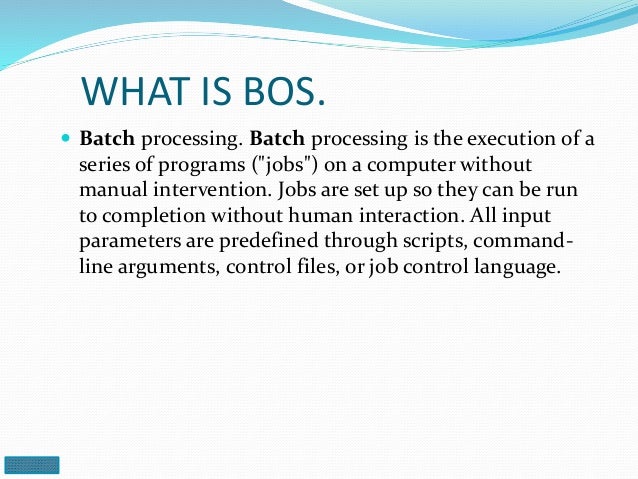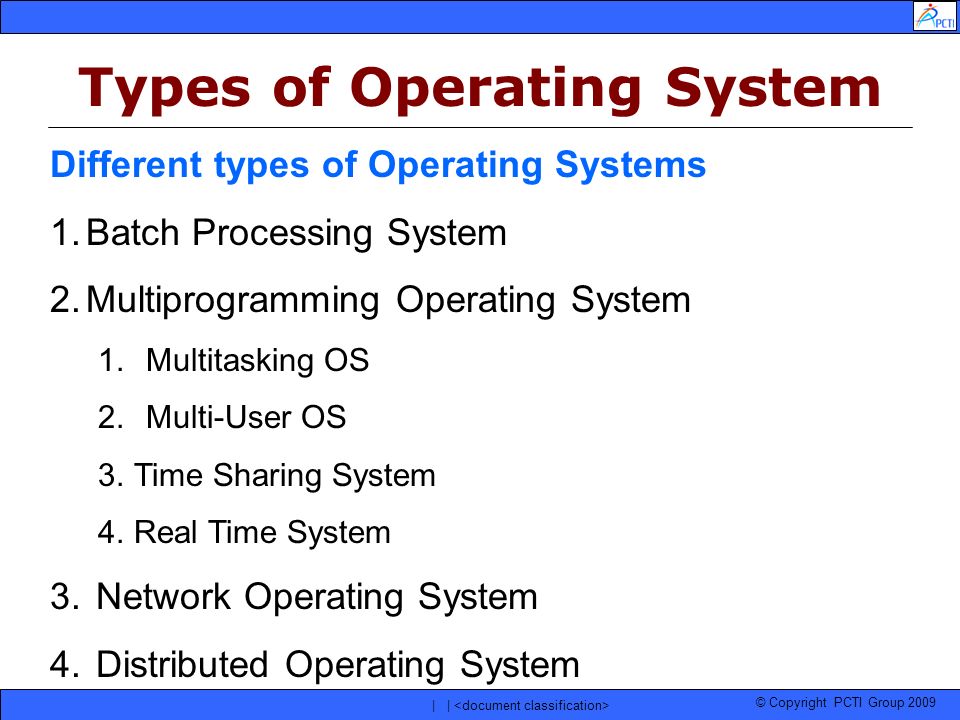
Disadvantages Of Serial Processing Operating System
Oct 7, 2018 - Parallel and serial processing describe whether a computer system can break apart computational tasks to use several processors or cores. System, multiprocessor systems, multi-computer/ distributed systems, Real time Operating Systems. Serial processing 2. Batch processing 3. Multiprogramming 4. Multitasking or time sharing System Multitasking or Time Sharing System. EVOLUTION OF OPERATING SYSTEM - I. Driver usb adapter wireless 80211bg telecom by d link.
Operating systems are there from the very first computer generation and they keep evolving with time. In this chapter, we will discuss some of the important types of operating systems which are most commonly used. Batch operating system The users of a batch operating system do not interact with the computer directly. Each user prepares his job on an off-line device like punch cards and submits it to the computer operator. To speed up processing, jobs with similar needs are batched together and run as a group. The programmers leave their programs with the operator and the operator then sorts the programs with similar requirements into batches.
The problems with Batch Systems are as follows − • Lack of interaction between the user and the job. • CPU is often idle, because the speed of the mechanical I/O devices is slower than the CPU.
• Difficult to provide the desired priority. Time-sharing operating systems Time-sharing is a technique which enables many people, located at various terminals, to use a particular computer system at the same time. Time-sharing or multitasking is a logical extension of multiprogramming. Processor's time which is shared among multiple users simultaneously is termed as time-sharing. The main difference between Multiprogrammed Batch Systems and Time-Sharing Systems is that in case of Multiprogrammed batch systems, the objective is to maximize processor use, whereas in Time-Sharing Systems, the objective is to minimize response time. Multiple jobs are executed by the CPU by switching between them, but the switches occur so frequently. Thus, the user can receive an immediate response.

For example, in a transaction processing, the processor executes each user program in a short burst or quantum of computation. That is, if n users are present, then each user can get a time quantum. When the user submits the command, the response time is in few seconds at most. The operating system uses CPU scheduling and multiprogramming to provide each user with a small portion of a time.
Computer systems that were designed primarily as batch systems have been modified to time-sharing systems. Advantages of Timesharing operating systems are as follows − • Provides the advantage of quick response. • Avoids duplication of software. • Reduces CPU idle time.
Disadvantages of Time-sharing operating systems are as follows − • Problem of reliability. • Question of security and integrity of user programs and data. • Problem of data communication.
Distributed operating System Distributed systems use multiple central processors to serve multiple real-time applications and multiple users. Data processing jobs are distributed among the processors accordingly. The processors communicate with one another through various communication lines (such as high-speed buses or telephone lines). These are referred as loosely coupled systems or distributed systems. Processors in a distributed system may vary in size and function. These processors are referred as sites, nodes, computers, and so on.